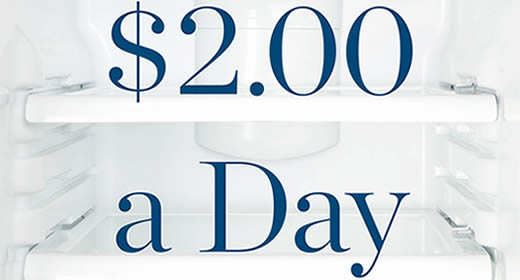
“So, let’s start with poverty,” says Ezra Klein, editor of Vox, launching a 40-minute interview with Hillary Clinton. “Scholars have estimated that the number of American families living in extreme poverty, under $2 in cash income, has skyrocketed in the last 20 years.”
Klein is referring to $2.00 a Day: Living on Almost Nothing in America, a book by Luke Shaefer (University of Michigan) and Kathryn Edin (Johns Hopkins) that documents the rise of extreme domestic poverty in the wake of America’s 1996 welfare reforms.
Watch the interview, listen to the audio, or read the transcript, for Clinton’s response, which covers what went wrong after welfare reform, what we can do to reduce domestic poverty, how we can pay for these programs, and more.
“I think we’ve got to address really systemic, generational poverty differently,” Clinton tells Klein.
“We still have to lift up working people. We have to make it worth everyone’s while to work. We have to create more good jobs. We still have to have the training pipeline there. But we are now, unfortunately, back having to face poverty that we thought we had a better approach toward ending than it turns out — given the change in administrations and attitudes — that we did.”
Clinton and Klein also talk about immigration reform, universal health care, free college, essential presidential skills, and restoring trust in government.
H. Luke Shaefer is an associate professor of social work and public policy. His research focuses on the effectiveness of the United States social safety net in serving low-wage workers and economically disadvantaged families. His recent work explores rising levels of extreme poverty in the United States.